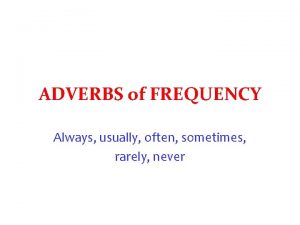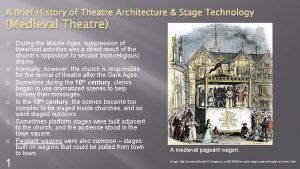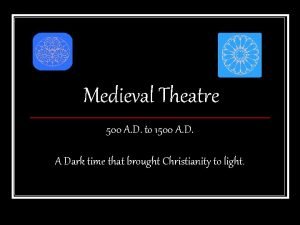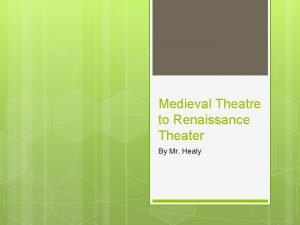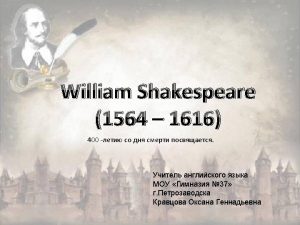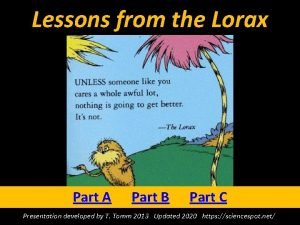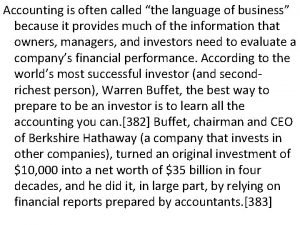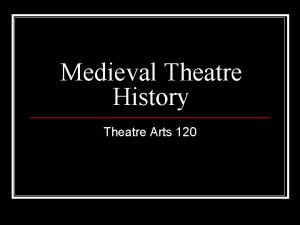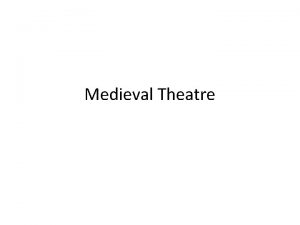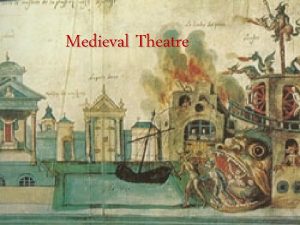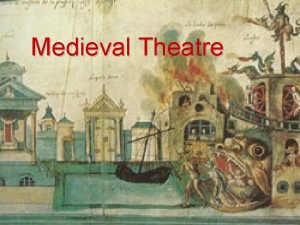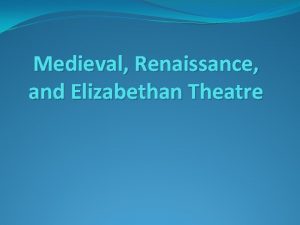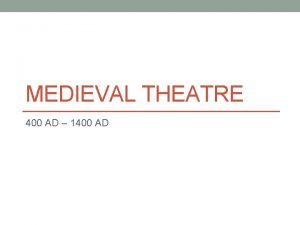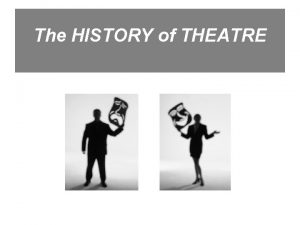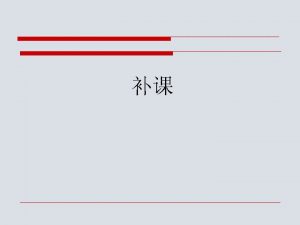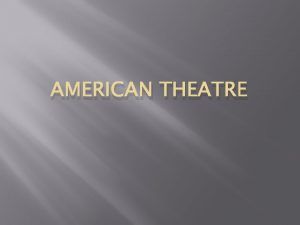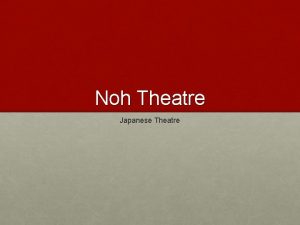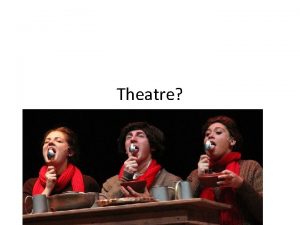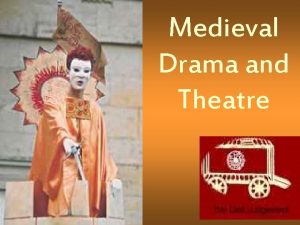Medieval Theatre History Medieval Theatre Often called The















- Slides: 15

Medieval Theatre History

Medieval Theatre �Often called – The Dark Ages �Not really a correct title �start: Rome’s fall 476 AD �end: 15 th Century � 400 years no organized theatre - jugglers - traveling minstrels �Catholic Church had total control of drama and art for a 1000 years

Medieval Theatre �The first theatre started in the church: called- tropes - drama scenes performed during the mass - common people were illiterate - started as tableaus still scenes from the Bible done at Christmas and Easter

Medieval Theatre �The next style of church drama was the pantomime �Then dialogue was added to the church dramas - at first spoken in Latin - then spoken in native language

Medieval Theatre- Mansions �New style: Mansions or Stations �Theatre moved outside of the church to the courtyard �Crowds moved from station to station �Plays performed: Mystery- Bible stories of Christ Miracle-Stories of the Saints Morality- Stories of Right and Wrong

Mystery Play �Acted out the stories of Christ’s life �Still performed today in parts of England Germany

Morality Play �teaching right and wrong �telling people how to have a good life �Famous Morality Play: Everyman Note: we will be reading this

Miracle Plays �The lives of saints in the church �still acted today in England

Medieval Theatre � 10 th Century � Hell’s Mouth � playwright: � considered to be Hrosvitha -wrote comedies -moved outside of church -too much action for insid e � staging in courtyard � special effects used terrifying � showed tortured souls � featured realistic screams

Medieval Theatre �shows an outdoor play with Hell’s Mouth and demons to scare the viewers into being better people

Feast of Fools � Church festivals were run by younger priest � Other stories done by trade guilds bakers- feeding 5000 Noah’s ark- ship builders � removed from church � some of characters were too much like older priest � poked fun at superiors

Pageant Wagons- Cycle Plays � double-decker wagons that traveled from town to town � resembled parade floats � still done in York Wakefield Chester Coventry � Each new scene on different wagon

Pictures of Pageant Wagons

Passion Plays �Depict the life of �Performed: Christ �first started as a promise to God to have town spared from the Black Plagues of the Dark Ages � in Germany �in Spearfish, SD

Major Changes the Dark Ages brought to Theatre �viewers closer to the stage �acting and dialogue both became important �mixed comic and serious scenes in the same play �more theatre for the common man
 Medieval theater timeline
Medieval theater timeline Always never often rarely sometimes usually
Always never often rarely sometimes usually History of theatre architecture
History of theatre architecture Pageant wagons medieval theatre
Pageant wagons medieval theatre Medieval theatre timeline
Medieval theatre timeline Fictional character
Fictional character Quaritis
Quaritis Theatre makeup
Theatre makeup William shakespeare is often called the world’s greatest
William shakespeare is often called the world’s greatest What is the correct equation for cellular respiration?
What is the correct equation for cellular respiration? The lorax lesson learned
The lorax lesson learned Accounting is often called
Accounting is often called The memory organization of a plc is often called
The memory organization of a plc is often called Barlunds model of communication pros and cons
Barlunds model of communication pros and cons Dna is often called the
Dna is often called the Dna is often called the
Dna is often called the

